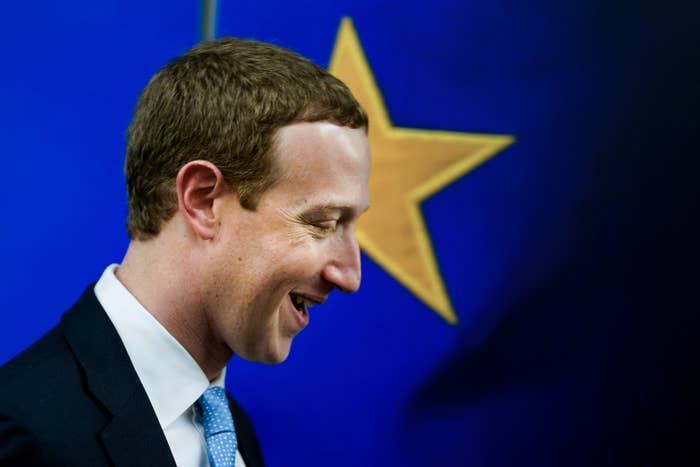
Facebook ignored or was slow to act on evidence that fake accounts on its platform have been undermining elections and political affairs around the world, according to an explosive memo sent by a recently fired Facebook employee and obtained by BuzzFeed News.
The 6,600-word memo, written by former Facebook data scientist Sophie Zhang, is filled with concrete examples of heads of government and political parties in Azerbaijan and Honduras using fake accounts or misrepresenting themselves to sway public opinion. In countries including India, Ukraine, Spain, Brazil, Bolivia, and Ecuador, she found evidence of coordinated campaigns of varying sizes to boost or hinder political candidates or outcomes, though she did not always conclude who was behind them.
“In the three years I’ve spent at Facebook, I’ve found multiple blatant attempts by foreign national governments to abuse our platform on vast scales to mislead their own citizenry, and caused international news on multiple occasions,” wrote Zhang, who declined to talk to BuzzFeed News. Her LinkedIn profile said she “worked as the data scientist for the Facebook Site Integrity fake engagement team” and dealt with “bots influencing elections and the like.”

Kenzo Tribouillard / Getty Images
“I have personally made decisions that affected national presidents without oversight, and taken action to enforce against so many prominent politicians globally that I’ve lost count,” she wrote.
The memo is a damning account of Facebook’s failures. It’s the story of Facebook abdicating responsibility for malign activities on its platform that could affect the political fate of nations outside the United States or Western Europe. It’s also the story of a junior employee wielding extraordinary moderation powers that affected millions of people without any real institutional support, and the personal torment that followed.
“I know that I have blood on my hands by now,” Zhang wrote.
These are some of the biggest revelations in Zhang’s memo:
- It took Facebook’s leaders nine months to act on a coordinated campaign “that used thousands of inauthentic assets to boost President Juan Orlando Hernandez of Honduras on a massive scale to mislead the Honduran people.” Two weeks after Facebook took action against the perpetrators in July, they returned, leading to a game of “whack-a-mole” between Zhang and the operatives behind the fake accounts, which are still active.
- In Azerbaijan, Zhang discovered the ruling political party “utilized thousands of inauthentic assets… to harass the opposition en masse.” Facebook began looking into the issue a year after Zhang reported it. The investigation is ongoing.
- Zhang and her colleagues removed “10.5 million fake reactions and fans from high-profile politicians in Brazil and the US in the 2018 elections.”
- In February 2019, a NATO researcher informed Facebook that “he’d obtained Russian inauthentic activity on a high-profile U.S. political figure that we didn’t catch.” Zhang removed the activity, “dousing the immediate fire,” she wrote.
- In Ukraine, Zhang “found inauthentic scripted activity” supporting both former prime minister Yulia Tymoshenko, a pro–European Union politician and former presidential candidate, as well as Volodymyr Groysman, a former prime minister and ally of former president Petro Poroshenko. “Volodymyr Zelensky and his faction was the only major group not affected,” Zhang said of the current Ukrainian president.
- Zhang discovered inauthentic activity — a Facebook term for engagement from bot accounts and coordinated manual accounts— in Bolivia and Ecuador but chose “not to prioritize it,” due to her workload. The amount of power she had as a mid-level employee to make decisions about a country’s political outcomes took a toll on her health.
- After becoming aware of coordinated manipulation on the Spanish Health Ministry’s Facebook page during the COVID-19 pandemic, Zhang helped find and remove 672,000 fake accounts “acting on similar targets globally” including in the US.
- In India, she worked to remove “a politically-sophisticated network of more than a thousand actors working to influence” the local elections taking place in Delhi in February. Facebook never publicly disclosed this network or that it had taken it down.
“We’ve built specialized teams, working with leading experts, to stop bad actors from abusing our systems, resulting in the removal of more than 100 networks for coordinated inauthentic behavior,” Facebook spokesperson Liz Bourgeois said in a statement. “It’s highly involved work that these teams do as their full-time remit. Working against coordinated inauthentic behavior is our priority, but we’re also addressing the problems of spam and fake engagement. We investigate each issue carefully, including those that Ms. Zhang raises, before we take action or go out and make claims publicly as a company.”
BuzzFeed News is not publishing Zhang’s full memo because it contains personal information. This story includes full excerpts when possible to provide appropriate context.
In her post, Zhang said she did not want it to go public for fear of disrupting Facebook’s efforts to prevent problems around the upcoming 2020 US presidential election, and due to concerns about her own safety. BuzzFeed News is publishing parts of her memo that are clearly in the public interest…
